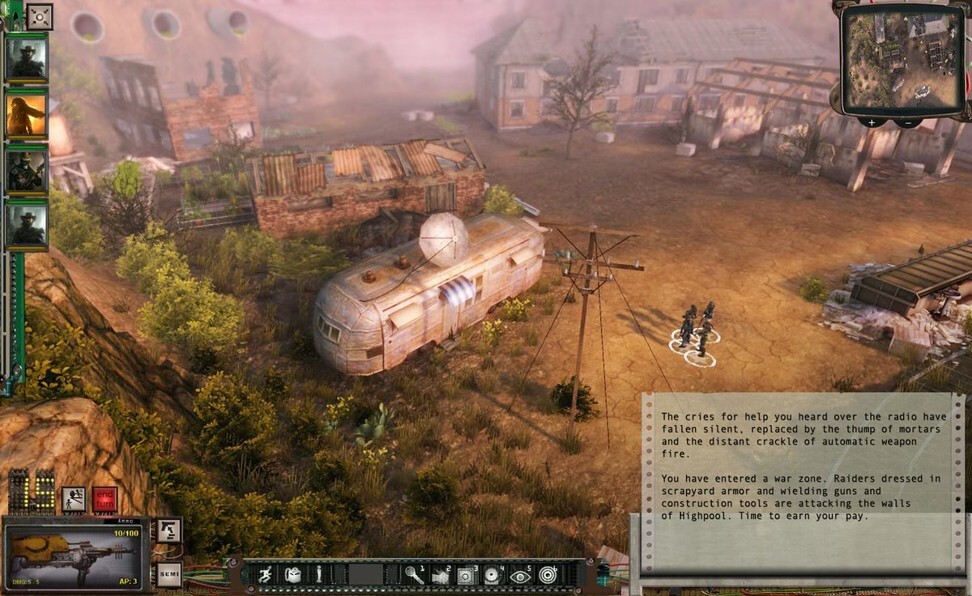
Death Stranding, Fallout, Wasteland: are apocalyptic games what’s needed right now during the coronavirus crisis?
- With the current state of the world, playing out a survival drama in a shattered civilisation might feel too close to the bone
- But games like Death Stranding are big on themes like community, connectivity and collaboration that many could find comfort in
“Welcome, Sam Porter Bridges.” For anyone who has played the Hideo Kojima-created video game Death Stranding, this automated greeting will sound all too familiar.
A legendary delivery man who is tasked with reconnecting isolated communities via the so-called Chiral Network as he trudges across a bleak, inhospitable landscape, Sam has already become something of an unlikely hero for our times. Like Kevin Costner’s character in The Postman, only way cooler.
Just over a month ago, a video shot in Innsbruck, Austria, went viral as a shopper, clearly panic buying as a result of the coronavirus, ludicrously overloaded his scooter with bags.
The comparisons were immediately made to Sam, lugging his boxed-up deliveries through the rugged, rain-soaked terrain of the United Cities.

Is this a fate that awaits us all in a post-Covid-19 world? Are we all destined to be overloading wheelbarrows with toilet rolls in the future? Maybe it’s the nature of the surreal times we’re in right now, but apocalyptic-themed games feel right on the money.
If the measured plodding of Sam is too much for you, you can wander across the nuclear-holocaust-stricken world of Wasteland 2, the burnt-out future-scape of Fallout: New Vegas, the wintry-ness of Frostpunk or the decaying cities of Half-Life 2. Game designers have spent the last 30-odd years bringing us to this point; now the world is catching up just a little bit.
Personally, the game I’ve been waiting for the most since I finally put Red Dead Redemption 2 down is Naughty Dog’s The Last of Us Part II, the sequel to the 2013 masterpiece about a teenage girl, Ellie, and her older companion, Joel, who travel through a landscape filled with infected cannibalistic characters.
Blessed with an emotional narrative most Hollywood films struggle to replicate, The Last of Us was the ultimate post-apocalyptic heartbreaker.
Already, the follow-up has been delayed more than once. Its original February 2020 release date was first pushed back to May 2020 due to the perfectionist nature of developers Naughty Dog. Ironically, earlier this month, Sony announced a further indefinite delay on the game due to the “global crisis … preventing us from providing the launch experience our players deserve”. In other words, the sheer logistics of shipping it to millions of enthusiastic gamers appears too overwhelming in this time of instability.

Still, with half the world on lockdown and gaming platforms reporting a record rise in usage, it seems strange for one of the most anticipated games of the year to disappear off the map.
Perhaps, secretly, there is the concern that gamers may be reluctant to be drawn to an unforgiving world where society has all but collapsed. The unprecedented Covid-19 pandemic has already unleashed huge economic peril and emotional distress; why would anyone want to play a game that reminded us of that?
Yet, the post-apocalyptic setting has been a perennial staple for developers since the video game market started taking off in the 1980s (by way of an example, the original Wasteland was released in 1988, and its second sequel, Wasteland 3, hits shelves this coming August).

Rather like the zombie revival in TV shows like The Walking Dead, their popularity remains undimmed. The Last of Us sold 20 million copies; the Fallout franchise has collectively shifted more than 35 million units.
Undoubtedly, there’s a sheer fascination with the idea of playing out a survival drama amid a shattered-but-familiar civilisation.
It’s all too enticing to take a guided tour through a devastated digital rendering of the world we know from the safety of your sofa. Plus, such backdrops can play host to a wide variety of gaming styles – from I Am Alive’s stealth missions to the more artillery-heavy blasting of something like Far Cry: New Dawn.

Some might argue that now, with the world in meltdown, these games feel a little too close to the bone. But if anything, rather than put potential players off in a time of real crisis, some of these titles can offer comfort.
Ideas of community, connectivity and collaboration are writ large, themes that we’re in need of right now. Rebuilding ripped-apart worlds can feel inspirational. “Tomorrow is in your hands” as the Death Stranding tagline has it.
Nor does it seem like abating any time soon. Among the most anticipated titles this year is Biomutant, a kung fu fable set at a time when a plague is ruining the land.

Still, it will be intriguing to see how this, The Last of Us Part II, Wasteland 3 and others fare once – hopefully – the Covid-19 pandemic is overcome.
Will we go back to these fantasies? Or will they feel a little bit too much like recent times for our tastes? Maybe we’d all be better off playing The Sims.

 (1).JPG?itok=0BHk6odg&v=1665981271)